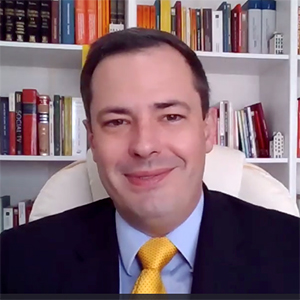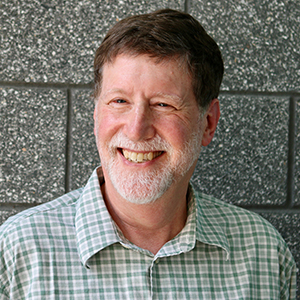In This Story

It’s not every day you meet someone who is officially persona non grata in Russia, but that’s the case for Schar School of Policy and Government 2007 graduate Jason Jay Smart.
In 2009, as a recently minted 24-year-old George Mason University graduate with a job working for the International Republican Institute (IRI), a U.S.-financed nonprofit promoting democracy around the world, Smart found his visa to visit Russia declined.
“The reason listed on the visa denial was a law that bans those considered a threat to Russian national security,” he said on a recent Zoom call. “My Russian immigration lawyer explained that the decision to reject me was for life and could not be repealed.”
The problem was the IRI chairman, the late U.S. Senator John McCain (R-AZ), “and the Russians really, really didn’t like John McCain,” he said. That, and the IRI was working for the Russian Democratic opposition to Vladimir Putin.
The banishment from Russia hasn’t slowed down Smart’s business. He is a Kyiv-based consultant on international relations, national security, and politics, which helps clients navigate particularly treacherous and difficult negotiations across the post-Soviet space and Latin America.

At Mason, Smart was a double major, in government and international politics at the Schar School and Russian studies in the College of Humanities and Social Sciences; he followed that with a graduate certificate in security studies (’11) and a master of political science from Virginia Tech (’13) and a doctorate from Moldova State University in Chișinǎu (’19).
Russia’s nefarious activities around the world have made Smart an in-demand consultant as well as a media figure. “I’m probably the most televised American in Ukraine,” he said. “Last year, I probably gave 300, 400 television interviews there. I published more than 300 articles in English, and more in Russian and Ukrainian.”
He keeps that success in perspective: The high media exposure, he said with a laugh, “doesn’t necessarily mean I’m really good at it. It’s just there’s not a lot of other people who feel comfortable in four languages to go on TV or up on a stage to discuss geopolitics with somebody—but I do.”
Two Schar School professors who helped guide Smart during his time at Mason are Eric B. Shiraev—"my first publications were with him,” Smart recalled—and Russia and Middle East expert Mark N. Katz. In fact, when it comes time to interview those with informed insight for his columns in Kyiv Post, Smart often turns to Katz, who recalls his former student well.
“It was clear to me then that he had an unusually passionate interest in the former Soviet Union, about which he was highly knowledgeable,” Katz said. “His contributions to class discussion were always detailed and articulate.”
As for being a source for the former student, Katz said, “It has truly been an honor to be quoted by him in some of his articles for the Kyiv Post. The two of us have also sometimes been quoted in the same Newsweek article.
“More importantly, I very much appreciate all that Jason is doing to remind American and European audiences about the plight of Ukraine and what is at stake both for it and the West in Putin's ongoing war with that country.”
As a Schar School undergraduate, Smart received a national security scholarship to study in Russia—which helped him to become fluent in Russian—“and from that I was able to apply for other jobs when I graduated,” he said.
“There was a direct correlation between my [Mason] degree and the fact that Mason is in the [Washington,] D.C. area, that’s quite positive, especially if you are trying to get into international fields. You mix with people from all sorts of places.”
As for that banishment from Russia, does he wear it as a badge of honor?
“Darn right!” he laughed. “You kidding me? It’s never not that, especially in the last two years. That thing hangs on my office wall and is a source of pride. It’s a very big positive—in fact, I would not work with people who would argue the contrary.”
